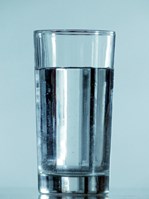How much will it cost to save your own water?
While winter may have truly set in, in certain parts of South Africa there’s no hint yet of water restrictions being lifted.
In Durban, new water restrictions have just been introduced, while the Knysna municipality has urged residents to adhere to the water restrictions. Meanwhile, the Western Cape Disaster Management Centre has recommended that water restrictions be implemented across the province during the rainy season until the dam levels have increased to acceptable levels.
There are several things you can do to reduce your reliance on your municipality’s water infrastructure including installing a borehole, rainwater tank or well point.
Justmoney looks at how each of these systems can be integrated into your home and what the cost would be:
Rainwater tanks:
What are they?
This is a tank that is used to store and collect rainwater that typically comes off your home’s roof or rain gutters. Rainwater is free and also untreated, so it has less of a carbon-footprint. The rainwater tanks range in size from 1 000 - 5 000 litres, so you can select the one that makes the most sense for your home.
How much do they cost?
According to Tom Peacock from Metro Roof installation costs vary between R8, 000 - R15, 000 for a 4000 litre tank. “There are limited to no electricity costs after installation if done correctly, as no pumps are needed to pump up the water from the water well or borehole. Take it one step further to include a grey water recycling system, with eco-friendly water points from your house directly into a storage tank for use in your garden. Grey water is all the water in your household that comes from the bathroom, kitchen sink and laundry,” says Peacock.
Boreholes:
What are they?
A borehole is a long narrow shaft that is drilled into the ground to locate and extract underground water. According to De Wets Wellpoints & Boreholes based in Cape Town, they can take about three to five days to install.
According to the Borehole Water Association of Southern Africa (BWA), you should contact your local municipal offices to find out if you need permission to drill a borehole in your area. If permission is required and you have not applied for it, the municipality could fine you heavily.
Remember too, that if you are using the borehole water for human and possibly animal consumption that a water quality test is vital and should be done on an annual basis.
How much do they cost?
The costs can vary depending on how deep the borehole needs to be and the amount of casting that needs to be used. The major costs you’d incur would be from drilling, yield testing and equipment. It’s essential to compare costs. The BWA’s pump installers division head, Roy Shearer, says the average drill cost is around R600 a metre. However, De Wets Wellpoints & Boreholes say that they charge R970 per metre when drilling for a borehole.
Shearer adds that yield testing can cost anywhere between R6,000 and R15, 000 whereas the equipment can cost between R30,000 and R50,000.
The type of rock that the company has to drill into, the drill method and the ground conditions can also affect the price. Extra costs may also be incurred if, for example, you need to hire a crane to lift the hydraulic rig machine into your garden.
Before you get a quote, find out from neighbours what it cost to install their boreholes so that you can get a sense of how much it could cost you.
Then ask the company that you hire or that you’ll be getting a quote from to itemise each line item or service so that you can easily compare costs with another company’s quote. Make sure you understand all the items listed on the quote. If something isn’t clear – ask the company to explain it to you.
Wellpoints:
What are they?
According to De Wets Wellpoints & Boreholes a wellpoint is a polyethylene pipe with a filtered end installed into a porous soil structure. The water is distributed by means of a surface mounted centrifugal pump. Installation can take between two to four hours. Wellpoints can go between eight and 12 metres deep should the ground structure allow.
How much do they cost?
Prices do vary from company to company but De Wets Wellpoints & Boreholes says that their standard price for supply and installation of a wellpoint is R6, 850 including VAT.
Whatever water saving equipment you decide to install to save water make sure that the companies and experts that you hire have necessary certification to prove that they can do what they claim they can do. The BWA says it’s important to check references of previous clients who have had time to assess quality of work over a reasonable period. It’s important to buy the right equipment too.
“A borehole is an asset that should last you at least 10 to 15 years at very little ongoing cost, provided you buy correctly at the start. If you don’t, it can become a very expensive and time-consuming liability with continual repair or replacement of pumps, the causes of which could either be traced back to poor borehole construction or incorrect pumping or pump installation,” warns the BWA.

